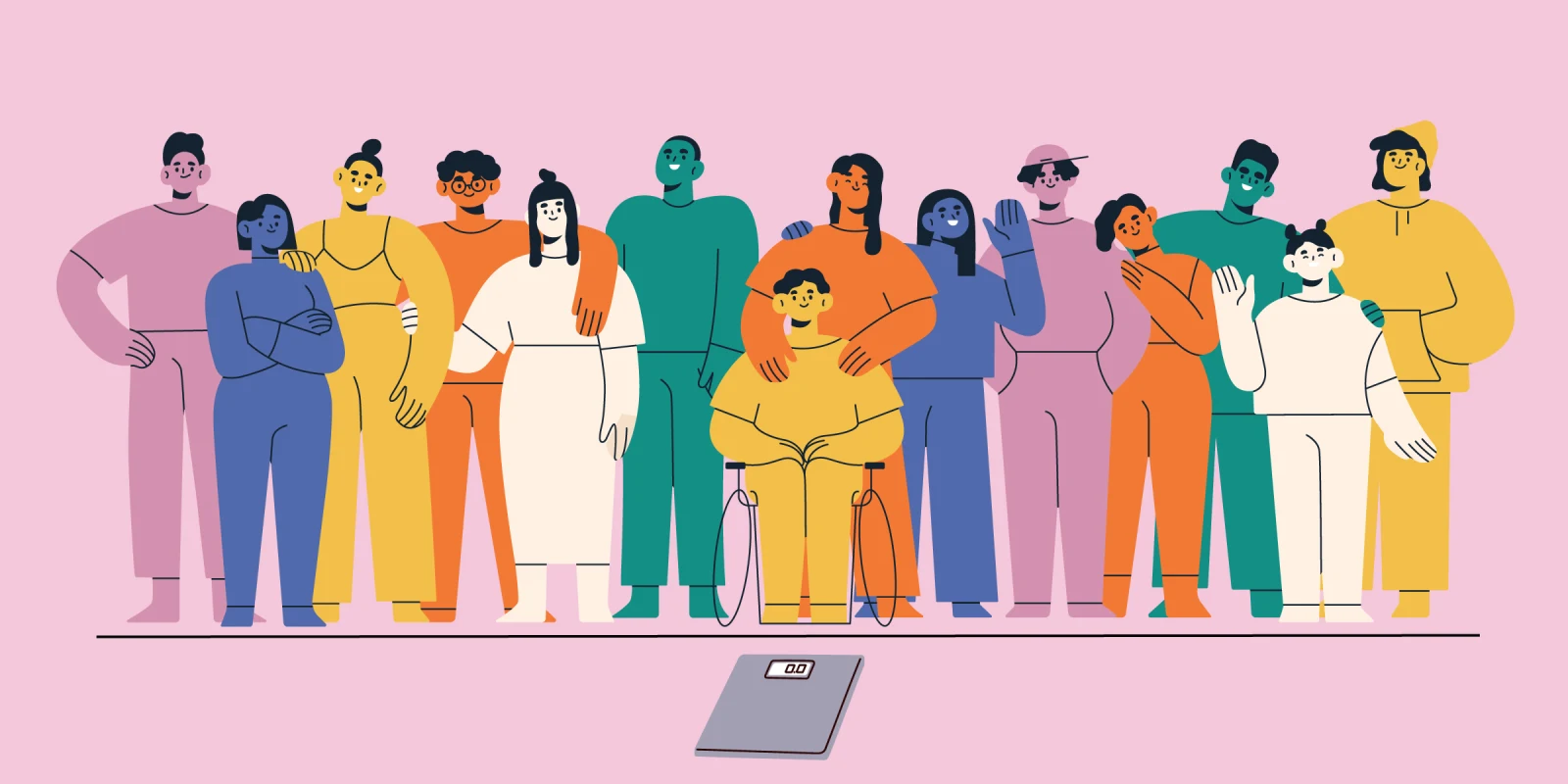I have a confession to make. For the last two years, I have been removing "overweight" and "obesity" from the problem lists for patients in my pediatric practice. I have been watching these problem lists closely for years. As the person responsible for my division's "meaningful use" of our EHR, I have set the goal of making our problem lists a relevant source of patient data. While many of you might believe that putting "obesity" on the problem list is relevant, I have years of observation, both personal and professional, to tell you why you are wrong.
Putting obesity on the pediatric problem list does nothing to address root causes or support healthy behaviors. It doesn't acknowledge the fact that not every overweight child will be an overweight adult nor bear obesity-related health consequences. Instead, it achieves the goal of shaming and undermining one set of children and ignoring the future consequences in a host of others.
I was nine years old the first time my pediatrician handed my mother a set of diet sheets. I had always been the "chunky one" of my three siblings. Now, I had a list of bland low-calorie foods to further set me apart. This was my first introduction to the twin myths of willpower and self-control. It was only the start of the years of nagging, criticism, and "concerns about my health" that would follow me for another 20-plus years.
My first stint at Weight Watchers was at age 17, after seeing the doctor for migraines. Although my pediatrician brain is now aware of pseudotumor cerebri and its association with obesity, the doctor's difficulty seeing through my highly myopic lenses to find my optic disc did not lead to a referral to ophthalmology nor neurology. I received no prescriptions or management recommendations. I was told to go to Weight Watchers because if I didn't lose weight, I would develop diabetes and heart disease and go on to an early death.
Spoiler alert: I still get migraines. There is data that supports my intimate knowledge that obesity stigma impacts quality of care and health outcomes. Obese people avoid seeking medical care because we are routinely subjected to negative attitudes, even when our chief complaint has nothing to do with our weight. Imagine what it is like to have that bias pressed on you repeatedly from childhood. What are the true long-term consequences to your mental and physical health?
I have fond memories of my Weight Watchers experience, even though there was little common ground between me and the middle-aged women who I joined in that church basement every week. After so many years, I can't separate the 1990 version from all the versions that would follow, but I remember that my mind and body utterly rebelled within several months. I spent the rest of my senior year in high school ingesting plates of spaghetti daily like they were water. My weight continued to balloon year after year. I was 28 and 280 pounds when I had Roux-en-Y gastric bypass and thought I put the years of torture behind me.
During my early years in practice, I ran two different weight management programs within my private practice setting, hoping to make my own impact on the "epidemic" of childhood obesity. I thought that the right support, advice, and motivation would be enough to create long-term behavioral change. I wasn't wrong, but individual patient outcomes were nonetheless all over the map. The programs ended for other reasons but even in my general pediatric practice, I knew that we were missing something.
Our understanding of the science of obesity has increased significantly since I started in practice, much less since my own obese childhood. The first time I attended a lecture that discussed the eating behaviors of genetically altered mice, my mind was blown. Could my post-Weight Watchers spaghetti binges stem from something genetically hard-wired rather than failure of will power?
I attended another lecture about sugar metabolism and its associated health consequences. Metabolic effects of our eating behaviors can certainly contribute to obesity, but weight alone is not a sufficiently reliable marker for disease. I felt vindicated, empowered, and seen. Finally, I had a thought process that not only explained my own life history, but also gave evidence-based support to a new strategy for approaching my patients.
Here is an example of why this shift matters. I saw two sisters, aged 9 and 10 for their physicals last summer. One sister was obese while the other was at least "average." Both were at an age where routine screening for dyslipidemia is recommended so we did a fingerstick check for lipids.
Which one had the abnormal values? Yes, the thinner one, whose abysmal eating habits we had already discussed before the lab values were known. As much as the plural of anecdote is not evidence, this glimpse into a potential future is worth recognizing. Which of these siblings is most at risk for health consequences in adulthood? It was then that I started culling my problem lists.
Obesity on the problem list narrows the conversation about health when it needs to remain nuanced. In 2023, for example, the American Academy of Pediatrics released updated obesity management guidelines to reflect the understanding that "obesity has complex genetic, physiologic, socioeconomic and environmental contributors." I would go further than this, to say that pediatricians need to recognize those contributors in all children — not just those who are already obese. In our patients who are obese, we need to support healthy behaviors that improve long-term outcomes even if their weight never changes.
I accept, however, that it will likely take years before our assumptions and practices catch up with the science. It has taken centuries for us to eliminate the social construct of race as a health determinant, so I suspect it will take at least a generation or more for us to reimagine how we approach obesity. The uproar associated with AAP guidelines shows how closely people adhere to their preconceptions about willpower and self-control. Even though most of the action statements focus on motivational interviewing and intensive behavioral treatments, a recent study suggests that those strategies often fail. Just daring to mention medication and bariatric surgery for adolescents brought the wrath of social media. Yet, just as with drug use and mental health, we need to remain cognizant that we don’t let our own biases limit options for our patients.
Pediatricians are driven by the goal of providing the care and guidance that will lead our children to become healthy, productive, and well-adjusted adults. The complexity of this task is both underappreciated and undervalued in our health care system. I am not naive enough to believe that the small microcosm of my office is enough to cocoon my obese patients from the world of bias that surrounds them daily. Obesity still sits at the top of my own problem list, so I share my personal journey daily. Supporting them empowers me. Mission accomplished.
How do you approach conversations about healthy eating and lifestyles with children? Share in the comments.
Dr. Kimberly Clare is a pediatrician in Poughkeepsie, NY. She enjoys reading, crochet and the New York Times Sunday crossword but her real passion is karate (black belt in Tang Soo Do). Dr. Clare is a 2023–2024 Doximity Op-Med Fellow.
Image by GoodStudio / Shutterstock







